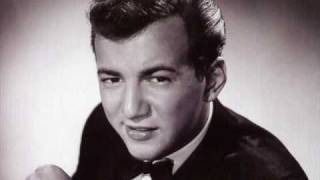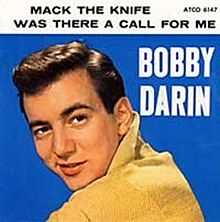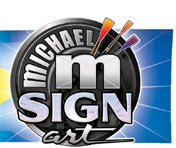| You are not logged in. | login to customize your own personal play list |
“Mack the Knife” by Bobby Darin |
| United States Federal Trade Commission forbids anyone under 13 from viewing these music videos! |
| You are not logged in. | login to customize your own personal play list |
“Mack the Knife” by Bobby Darin |
| United States Federal Trade Commission forbids anyone under 13 from viewing these music videos! |
 |
 |
 |
 |
You need Flash player 8+ and JavaScript enabled to view this video.
|
 |
 |
   |
 |

song info
 “Mack the Knife” by Bobby Darin is a pop song. Song Title: Mack the KnifeArtist: Bobby Darin Album: That’s All Genre: classic pop, jazz, rock Composer: Copyright © Kurt Weill (music), Bertolt Brecht (original German lyrics), Marc Blitzstein, Turk Murphy (English version) Lead Vocals: Bobby Darin Trumpet: Doc Severinsen Recorded: December 19, 1958, Fulton Studios, New York City Released: August 1959 Label: Atco (U.S.), London (UK) Number of listens: 28845 Current rank: 96 (updated weekly) Highest rank: 44 (play the video all the way through to register a vote for this song) Commentary: Translations courtesy of Apple and Google. |
||

Summary quotation from Wikipedia:
“Mack the Knife” or “The Ballad of Mack the Knife”, originally “Die Moritat von Mackie Messer”, is a song composed by Kurt Weill with lyrics by Bertolt Brecht for their music drama Die Dreigroschenoper, or, as it is known in English, The Threepenny Opera. It premiered in Berlin in 1928 at the Theater am Schiffbauerdamm. The song has become a popular standard.
The Threepenny Opera
A moritat (from mori meaning “deadly” and tat meaning “deed”) is a medieval version of the murder ballad performed by strolling minstrels. In The Threepenny Opera, the moritat singer with his street organ introduces and closes the drama with the tale of the deadly Mackie Messer, or Mack the Knife, a character based on the dashing highwayman Macheath in John Gay’s The Beggar’s Opera (who was in turn based on the historical thief Jack Sheppard). The Brecht-Weill version of the character was far more cruel and sinister, and has been transformed into a modern anti-hero.
The play opens with the moritat singer comparing Macheath (unfavorably) with a shark, and then telling tales of his robberies, murders, rapes, and arson.
The song was a last minute addition, inserted just before its première in 1928, because Harald Paulsen, the actor who played Macheath, demanded that Brecht and Weill add another number that would more effectively introduce his character.[1] However, Weill and Brecht decided the song should not be sung by Macheath himself, opting instead to write the song for a street singer in keeping with the moritat tradition. At the premièe, the song was sung by Kurt Gerron, who played Police Chief Brown. Weill also intended the Moritat to be accompanied by a barrel organ, which was to be played by the singer.[2] At the premiere, though, the barrel organ failed, and the pit orchestra (a jazz band) had to quickly provide the accompaniment for the street singer. [3]
German English Und der Haifisch, der hat Zähne,
Und die trägt er im Gesicht.
Und Macheath, der hat ein Messer,
Doch das Messer sieht man nicht.Though the shark’s teeth may be lethal
Still you see them white and red
But you won’t see Mackie’s flick knife
Cause he slashed you and you’re dead
Popular song
“Mack the Knife” was introduced to the United States hit parade by Louis Armstrong in 1956, but the song is most closely associated with Bobby Darin, who recorded his version at Fulton Studios on West 40th Street, New York City, on December 19, 1958 (with Tom Dowd engineering the recording). In 1959 Darin’s version reached number one on the Billboard Hot 100 and number six on the Black Singles chart, and earned him a Grammy Award for Record of the Year. Dick Clark had advised Darin not to record the song because of the perception that, having come from an opera, it wouldn’t appeal to the rock & roll audience. In subsequent years, Clark recounted the story with good humor. Frank Sinatra, who recorded the song with Quincy Jones on his “L.A. Is My Lady” album, called Darin’s the “definitive” version. Darin’s version hit #3 on Billboard’s All Time Top 100.[7] In 2003, the Darin version was ranked #251 on Rolling Stone’s “The 500 Greatest Songs of All Time” list. On BBC Radio 4’s Desert Island Discs, pop mogul Simon Cowell named “Mack the Knife” the best song ever written.
—from Wikipedia (the Wikipedia:Text of Creative Commons Attribution-ShareAlike 3.0 Unported License applies to Wikipedia’s block of text and possible accompanying picture, along with any alterations, transformations, and/or building upon Wikipedia’s original text that ThisSideofSanity.com applied to this block of text)
The Americans with Disabilities Act (ADA) and U.S. Government Section 508 of the Rehabilitation Act of 1973 require that web sites provide transcripts of audio for the deaf.
We will be adding lyrics to all songs as fast as we can. Please be patient.
Jon: Great song!
To submit a comment, use the form below:
Please use the form (with the delay for a human to inspect it) because this website is attacked by more than 20 spam attempts per minute. The only way to keep you safe from the spam is by having human review.
 |
  |
|
If you spot an error in fact, grammar, syntax, or spelling, or a broken link, or have additional information, commentary, or constructive criticism, please contact us.
Copyright © 2014 Milo. All rights reserved. Todos Derechos Reservados. The copyrights on all source code and the data base belong to Milo and are used on this web site by permission.
The source code is at OSdata.com, released under Apache License 2.0.
Copyright 2012, 2013, 2014 Milo
Licensed under the Apache License, Version 2.0 (the “License”); you may not use this file except in compliance with the License. You may obtain a copy of the License at:
http://www.apache.org/licenses/LICENSE-2.0
Unless required by applicable law or agreed to in writing, software distributed under the License is distributed on an “AS IS” BASIS, WITHOUT WARRANTIES OR CONDITIONS OF ANY KIND, either express or implied. See the License for the specific language governing permissions and limitations under the License.
Enjoy the This Side of Sanity website Twitter feed.
Enjoy the This Side of Sanity Twitter feed.

|
player artwork by michaelm